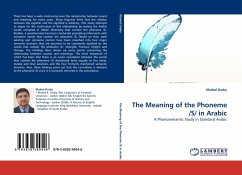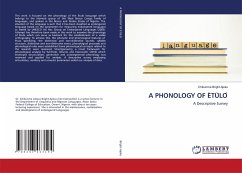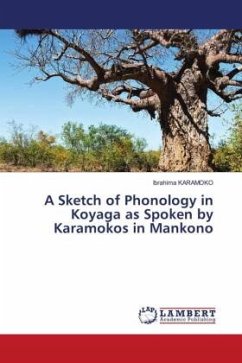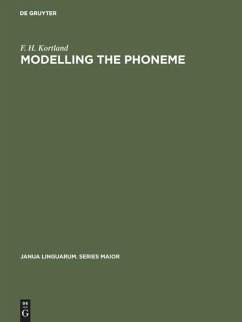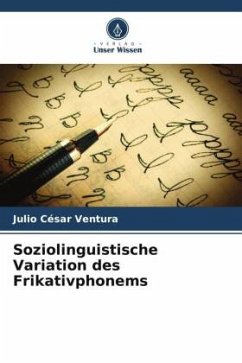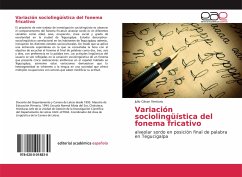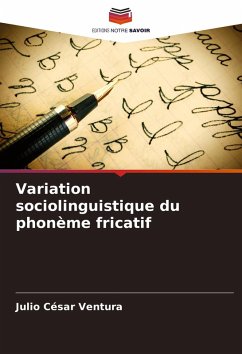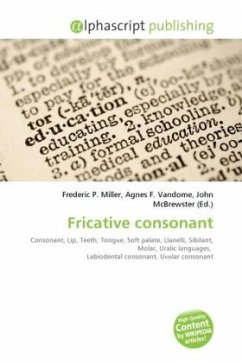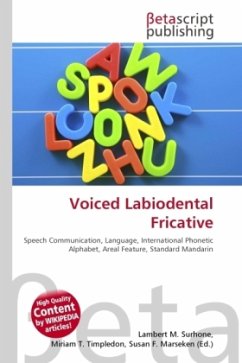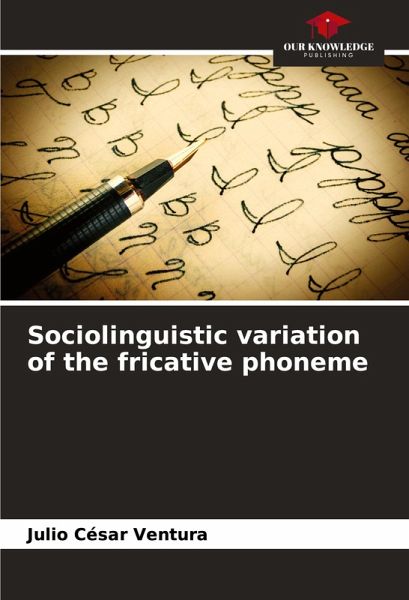
Sociolinguistic variation of the fricative phoneme
Versandkostenfrei!
Versandfertig in 6-10 Tagen
27,99 €
inkl. MwSt.

PAYBACK Punkte
14 °P sammeln!
The purpose of this sociolinguistic research work is to observe the behaviour of the dull alveolar fricative phoneme /s/ in different variables such as age, sex, occupation, social class and level of schooling in the city of Tegucigalpa. A descriptive-sociolinguistic correlational study of the inhabitants of Tegucigalpa, including the different socio-cultural strata. Thus, a spontaneous interview was applied in which the time was consulted with the aim of listening for the phoneme at the end of words such as two, three, six and ten, with preference given to the word three. The user's linguisti...
The purpose of this sociolinguistic research work is to observe the behaviour of the dull alveolar fricative phoneme /s/ in different variables such as age, sex, occupation, social class and level of schooling in the city of Tegucigalpa. A descriptive-sociolinguistic correlational study of the inhabitants of Tegucigalpa, including the different socio-cultural strata. Thus, a spontaneous interview was applied in which the time was consulted with the aim of listening for the phoneme at the end of words such as two, three, six and ten, with preference given to the word three. The user's linguistic attitudes are reflected in the sociolinguistic variation of a phoneme that presents five allophonic realisations in the Spanish spoken in Tegucigalpa, and these variations show that heterogeneity is inherent to language in a society that offers multiple occupations with actors who know how to modify their attitude.



